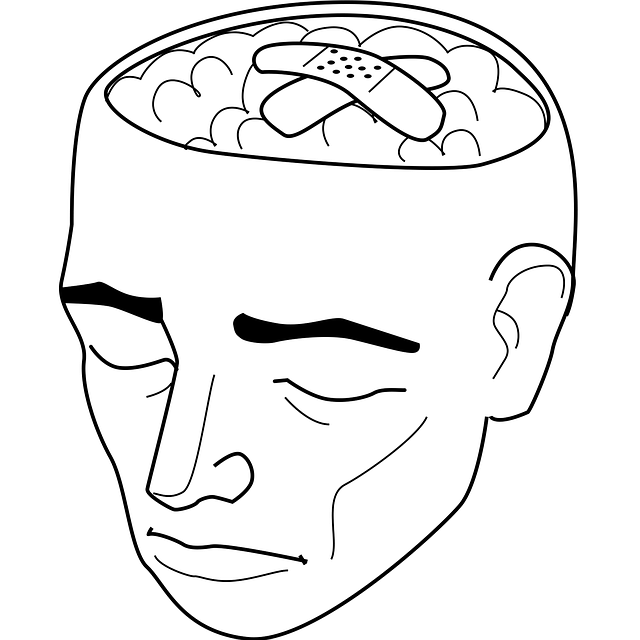Louisville Adolescent and Teen Therapy introduces the RFM (Recovery, Flexibility, Mastery) framework, a Resilience-Focused Therapy approach to empower teens in navigating challenges. This method fosters a positive mindset, equips them with coping skills, and promotes healthy self-care routines. By measuring the success of RFM exercises through standardized questionnaires and qualitative feedback, therapists ensure its effectiveness in preventing adolescent burnout and improving emotional regulation. Integrating these findings into public awareness campaigns enhances tailored strategies to meet Louisville's unique teen mental health needs.
“Unleashing resilience is a key component of fostering healthy development in adolescents. This article explores an effective framework, RFM (Recovery, Flexibility, and Meaning), and its implementation through Resilience-Focused Therapy (RFT) exercises in Louisville’s teen services. We delve into the significance of RFM in enhancing adolescent mental health and provide insights on measuring success within therapy settings. By understanding and applying these strategies, Louisville adolescent and teen therapy centers can empower young individuals to navigate challenges with increased adaptability and well-being.”
- Understanding RFM and Its Role in Resilience Building for Adolescents
- Implementing Resilience-Focused Therapy (RFT) Exercises in Louisville Teen Services
- Measuring Success: Evaluating the Impact of RFM on Adolescent Mental Health in Therapy Settings
Understanding RFM and Its Role in Resilience Building for Adolescents

Resilience is a vital skill for adolescents to cultivate, especially in navigating the challenges and uncertainties of growing up. This is where RFM (Recovery, Flexibility, and Mastery) comes into play as an effective framework. Louisville Adolescent and Teen Therapy introduces these concepts to help young individuals build resilience and cope with life’s stressors.
RFM focuses on fostering a positive mindset, encouraging teens to view setbacks as opportunities for growth. By developing recovery skills, adolescents learn to bounce back from difficult situations. Flexibility is key; it teaches them to adapt and think creatively when faced with challenges. Moreover, mastery involves acquiring problem-solving abilities and learning from experiences, boosting self-esteem improvement and promoting healthy self-care practices. These exercises are designed to empower teens, enabling them to approach life’s hurdles head-on with a sense of control and optimism.
Implementing Resilience-Focused Therapy (RFT) Exercises in Louisville Teen Services

Louisville Adolescent and Teen Therapy centers are increasingly integrating Resilience-Focused Therapy (RFT) exercises into their service offerings to better support young individuals’ mental health and overall well-being. RFT, a form of behavioral therapy, empowers teens by teaching them skills to navigate life’s challenges with greater resilience and coping mechanisms. Through engaging exercises tailored to their age group, Louisville teen services aim to foster a sense of empowerment and self-efficacy in managing stress, anxiety, and other common mental health concerns.
Implementing RFT involves collaborative goal setting, where therapists work with teens to identify specific areas they wish to improve. This personalized approach is then coupled with evidence-based strategies that promote positive behavioral changes. One such strategy is encouraging the development of self-care routines for better mental health, which can include mindfulness practices, physical exercise, and healthy sleep habits. By weaving these techniques into their daily lives, teens in Louisville learn to proactively manage their mental wellness, building a foundation of resilience that extends far beyond their therapy sessions.
Measuring Success: Evaluating the Impact of RFM on Adolescent Mental Health in Therapy Settings

Measuring the success of Implementing RFM (Resilience-focused Mindfulness) exercises in Louisville Adolescent and Teen Therapy settings is crucial for understanding their impact on young minds. By evaluating changes in mental health outcomes, therapists can assess whether RFM effectively mitigates burnout prevention among adolescents. Regular assessments, before and after intervention, could include standardized questionnaires gauging anxiety levels, depression, and stress management skills. These tools help identify improvements in emotional regulation, which is a key aspect of resilience-building.
Furthermore, qualitative feedback from both therapists and clients can provide valuable insights into the perceived benefits of RFM practices. Public Awareness Campaigns Development around mental health resilience could be enhanced by integrating these findings, ensuring that strategies for burnout prevention are tailored to meet the unique needs of Louisville’s adolescent population. Social Skills Training, another integral component of holistic therapy, may also benefit from RFM integration, fostering healthier interpersonal interactions and emotional coping mechanisms.
Resilience-Focused Therapy (RFT) exercises, as implemented in Louisville adolescent and teen therapy settings, show significant promise in enhancing mental health outcomes. By understanding RFM’s role in building resilience among teens, therapists can facilitate meaningful changes that promote well-being. Measuring the success of these interventions highlights the importance of tailored approaches, emphasizing the unique needs of each young person. Further research and widespread adoption of RFM strategies could revolutionize Louisville adolescent therapy, fostering stronger, more resilient individuals within the community.














